‘What you do is up to you, Abby. I’ll come and do some plain talking with you, if you think it’ll help. But if he stays as leader of this country, I’ll give you all the hardware you want to buy, but I won’t let you have one single man.’
Missh nodded, and looked at his watch. It was ten o’clock.
‘My father works in his study until late every night. He will be there now, and it will be quiet. Now will be a good time for a talk. Will you wait here?’
Culundis nodded.
‘Would you like some company while I am gone?’
‘No,’ said the Greek, with a grin. ‘To show my confidence in you, I’m going to start making some plans. If we’re going to move fast, I’ve got a lot of thinking to do.’
Missh felt far from confident as he stepped out of the elevator into the dim candlelight of his father’s hallway. He had brushed his teeth and sprayed on some strong cologne, to try and mask the smell of the brandy and cigars; his father despised alcohol and smoking. He walked down the long corridor and knocked on the massive jewelled double-doors that opened onto the most bizarre room in the palace. His father called for whoever it was to enter, and Missh walked into the room.
The room occupied half of one floor of the palace. One wall, eighty feet long, was a floor-to-ceiling bookcase, packed with books. Two other walls were windows overlooking Tunquit, and the fourth wall was hung with huge blow-up photographs of oil rigs and factories in Umm Al Amnah. The floor was brown marble, strewn with crimson rugs, and the ceiling was intricately stuccoed and covered in paintings of scenes from the Koran.
Throughout the room, neatly arranged into groupings, was almost every electrical gadget that had ever been invented. There was an office section, with an IBM computer, a word processor, a telex, tele-text; a games section, with television, space invaders and a battery of other slot machines; a garden section, with a remote control lawn-mower, a computerized sprinkler system — which was plumbed in and would spray a circle of plants placed around it; there was a full-size passenger airline flight-training simulator; a robot which could walk across the floor, pick up a sheet of paper and walk back; and a device that would open and shut the window blinds depending on how it was shouted at.
The Emir was seated at his black lacquered desk in the centre of the room, and gave his son only the most cursory of nods as he entered, before inclining his head back down to the papers on his desk top. Even though, over the past ten years, Missh had become used to this spectacle, it still did not stop him from thinking about how utterly incongruous it all was: his father, in his djellaba and bare feet, spending almost all the hours of his life in this room, playing with his toys, reading glossy brochures and making multi-million dollar deals with international companies to build plants in Amnah.
The desk was the only object in the room older than the Emir. It was eight feet wide, studded with white stones and inlaid with reliefs in gold; it had been in the old palace, four miles outside Tunquit on the Suttoh road. Since moving into the new palace, the Emir had sold the old palace to the Hyatt Hotel group, who had turned it into the Amnah Hyatt.
The Emir looked up from behind the desk and bade his son sit on a bizarre chesterfield that looked like it had been found on Mars. ‘You don’t come to see me often, my son,’ he said.
‘I know, father. We are both busy with our separate lives.’
The old man shook his head. Missh felt uncomfortable. He wished he had remained standing; he didn’t like sitting so low down that he could only just see over the top of the desk.
‘He is a strange man, your guest you bring to eat.’
‘Strange, father?’
‘He says we have met before. I do not recall — I have not met him before.’
‘Father, he was being polite — he did not wish to offend your memory; but you did not merely meet — you hired him to equip your entire revolutionary force, and to provide soldiers, before you declared Independence from the Emirates.’
‘This man?’
‘Yes, father.’
The old man shook his head. ‘I hired this man? I do not believe it.’
‘But you did, father.’
‘I must have been an unwise man then to have hired a person such as this.’
‘Mr Culundis is a good man, father. What do you have against him?’
‘He has insulted us, my son, insulted us most gravely. I have never in my life been insulted in such a manner.’
‘What do you mean? How has he insulted you — us?’
‘You did not notice, perhaps? He was the guest of honour at our meal. I cut for him the finest meat of the animals, and I gave it to him. He did not eat this meat — he put it in his pocket.’
Prince Missh had done something his father had not: he had seen something of the world beyond Umm Al Amnah. From the age of ten, he had been sent to school in England — first to prep school, and then to Harrow; from there he went to Cambridge. Many of those things which were so sacred to his ancestors, he could see in perspective of the late twentieth century world; others, like his father, had not had this advantage. Missh personally felt only amusement at the situation; but he could fully understand his father’s anger. ‘He comes from a different culture, father; perhaps, for him, tongue is like pork is to us — forbidden — and he was being too polite to tell you?’
The Emir looked at Missh. ‘You are young, son. You have so much to learn, and I have such little time to teach you.’ He shook his head. ‘I worry, son, you have had too sheltered a life; you are so naive, so naive. Sometimes I do not even know where to begin. What will happen to this country after I am gone? You will not last five minutes, not five minutes.’
Missh stared at him for several minutes in silence. ‘Father — do you not realize what is happening out there beyond the walls of this palace?’
‘I realize very well, son. The revenues of oil are being used to make us into the most modern industrial nation in the world.’
‘Do you really believe that?’
‘What are you saying? It is true; no one has the modern equipment we have. Just take a look around you — at this office — everything in the world that is new, advanced, for industry, for agriculture, for medicine — I have either examples here, or the literature. There is nothing that is new and that is of value that we do not have either in this country, or on order.’
‘But your people aren’t interested — at least, most of them are not. They are plotting, father, plotting now, and any day they will rise up.’
‘You talk rubbish, son. Your mind has been poisoned by your foreign education. I knew I should not have sent you — but the Sauds send their sons, Oman sends his — so I must send mine.’
Missh quietly related to his father what had happened to his car at the Quommah Beach Club.
‘It serves you right,’ said the Emir. ‘That Beach Club is a place of decadence. The heir to the throne of this country has no business in a place like that, and your people were telling you so. It was their way of getting a message across; that is all.’
‘You are crazy, father, if that is all you think it was — crazy. Unless we do something now, you and I and all your wives and all your loyal servants will be dead. The people are going to rise up like they did in Iran, like they did in so many countries. It is no different here.’
‘So what do you suggest?’ demanded his father, belligerently.
‘I’m not suggesting. From now on, father, I am telling you what is to happen, and you are going to agree.’
The Emir stared at his son incredulously. ‘I am listening, son,’ he said contemptuously.
Читать дальше
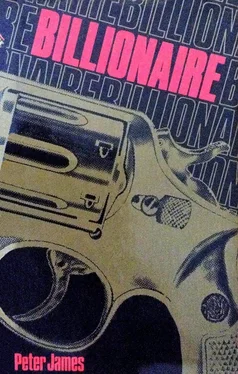
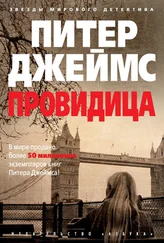
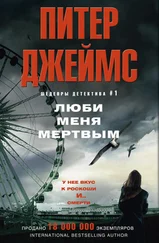
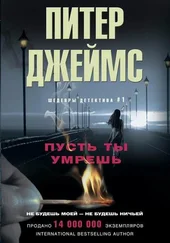

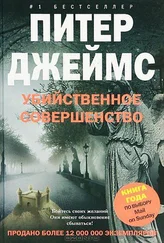
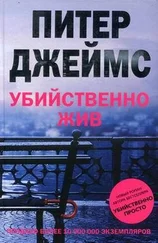
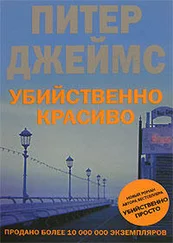
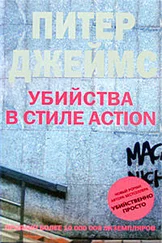

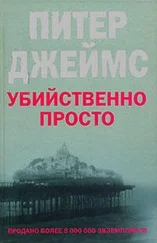
![Питер Джеймс - Искушение [litres]](/books/423638/piter-dzhejms-iskushenie-litres-thumb.webp)
![Питер Джеймс - Wish You Were Dead [story]](/books/430350/piter-dzhejms-wish-you-were-dead-story-thumb.webp)